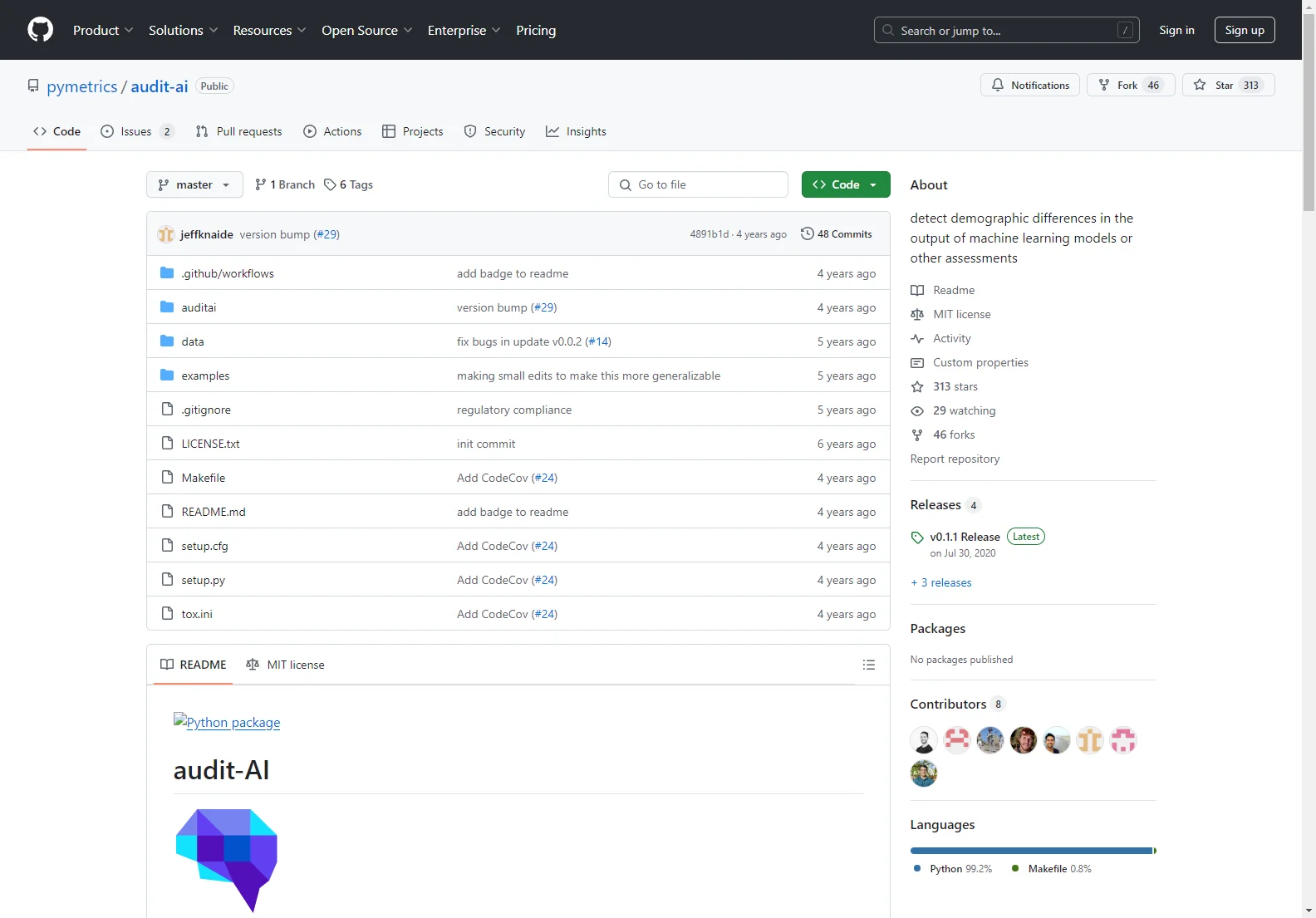Audit-AI: Open-Source Bias Detection for Machine Learning
Audit-AI is a Python library designed to detect and mitigate demographic bias in machine learning models. Developed by pymetrics, it helps ensure fairness in algorithms used for socially sensitive decisions like loan applications, hiring processes, and risk assessments.
Key Features
- Bias Detection: Identifies discriminatory patterns in training data and model predictions across various demographic categories (gender, ethnicity, etc.).
- Multiple Tests: Employs statistical tests like chi-squared, Fisher's exact test, and z-tests to assess bias significance.
- Practical and Statistical Significance: Evaluates bias using both statistical (p-values) and practical significance (e.g., the 4/5ths rule), providing a comprehensive assessment.
- Regression and Classification Support: Works with both classification and regression machine learning tasks.
- Time and Region Analysis: Allows for bias detection across different time periods and geographical regions.
- Open-Source and Extensible: Built on pandas and scikit-learn, offering flexibility and community contributions.
How Audit-AI Works
Audit-AI analyzes model outputs against demographic data to identify disparities. It compares the success rates (or predictions) of different demographic groups, calculating bias ratios and p-values to determine if differences are statistically and practically significant. The 4/5ths rule, commonly used in employment regulations, is a key metric for practical significance.
Use Cases
- Hiring: Ensure fairness in applicant screening and selection processes.
- Loan Applications: Reduce bias in credit scoring and loan approvals.
- Risk Assessment: Mitigate bias in predicting recidivism or other risk factors.
Installation and Usage
Install using pip:
pip install audit-AI
Requires scikit-learn, numpy, and pandas. Refer to the GitHub repository for detailed usage instructions and examples.
Comparisons
While several tools address fairness in machine learning, Audit-AI stands out with its open-source nature, comprehensive suite of statistical tests, and focus on both statistical and practical significance. It offers a more transparent and accessible approach to bias detection compared to some proprietary solutions.
Conclusion
Audit-AI provides a valuable tool for developers and researchers to build fairer and more equitable machine learning models. By proactively identifying and mitigating bias, we can move towards a more just and inclusive application of AI.

